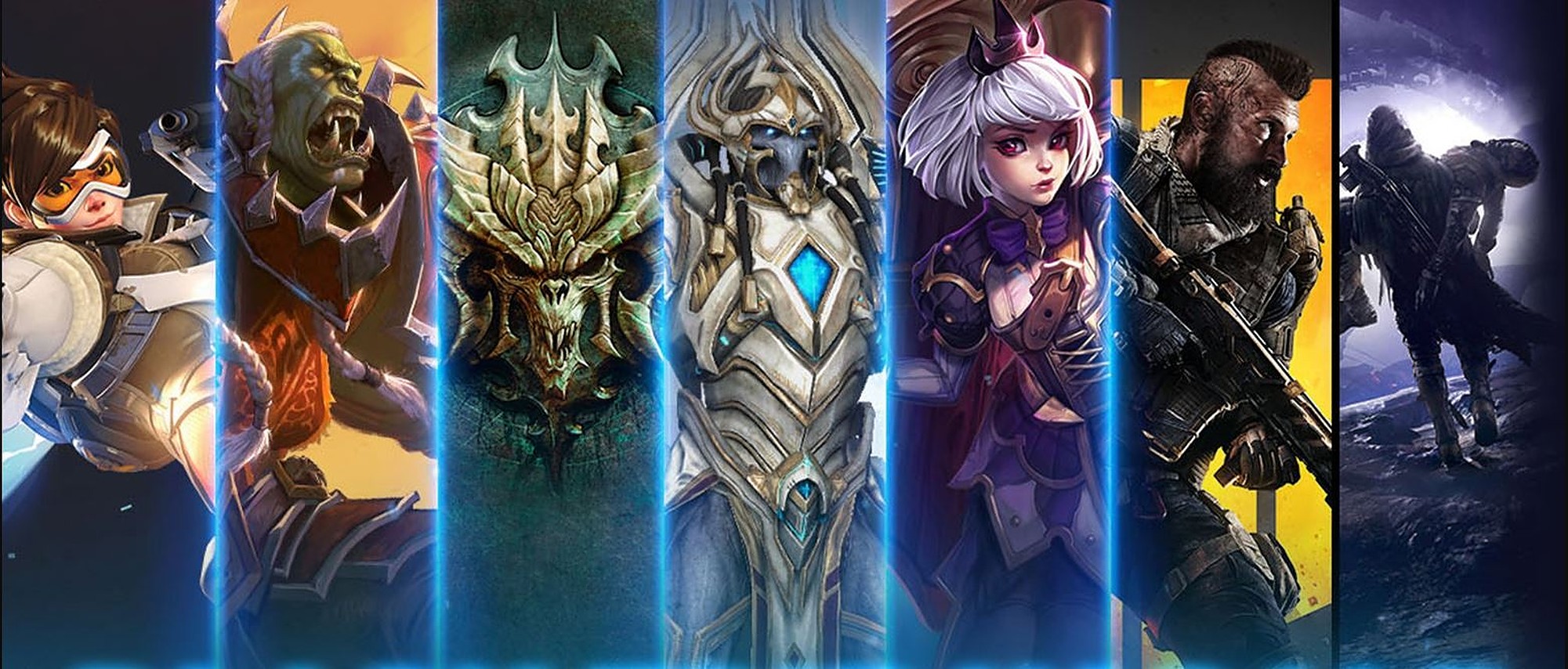Activision Blizzard is currently under investigation following accusations of harassment, discrimination, and fostering a hostile work environment. You can read more about the investigation here.
While there are a million things to say about the stunning announcement that Microsoft has acquired Activision Blizzard in a deal reportedly worth $68.7 billion (and we’ll certainly work to say as much about this deal as possible), one of the biggest questions on the minds of gamers everywhere at the moment is simply “What games and properties did Microsoft just acquire from Activision Blizzard?”
The full answer to that question is…complicated. While there are some major franchises that Microsoft has certainly acquired as a result of this deal (Call of Duty, Warcraft, and the other marquee names they were quick to talk about), there are numerous smaller properties theoretically owned by Activision Blizzard that Microsoft now seemingly controls.
Before we dive into the “theoretical” part of that statement, here’s a rundown of some of the major and minor properties that Microsoft now controls following the Activision Bizzard deal (based on what we currently know and suspect):
- Blackthorn
- Bubble Witch Saga
- Call of Duty
- Candy Crush
- Crash Bandicoot
- Diablo
- Empire Earth
- Farm Heroes Saga
- Gabriel Knight
- Geometry Wars
- Guitar Hero
- Gun
- Hearthstone
- Heretic
- Hexen
- Interstate 76
- King’s Quest
- Overwatch
- Pitfall
- Police Quest
- Rock N’ Roll Racing
- Skylanders
- Space Quest
- Spyro
- Starcraft
- SWAT
- The Lost Vikings
- Tony Hawk
- Warcraft
- Zork
One thing that you really need to keep in mind about the list above is that it is by no means “complete” and will likely change over the coming weeks and months as this deal, hopefully, gives us a better understanding of what Activision Blizzard’s full library actually looks like. Such as it is, the already complicated world of video game rights ownership (especially with a company that has made as many acquisitions over the years as Activision) is further complicated by the scope of this deal and its possible implications.
In other words, Activision Blizzard has largely focused on a relatively small number of franchises in more recent years, which means that we really haven’t seen the full power of that battle station in quite some time. Properties could have quietly been lost, shifted, or abandoned (if they survived the initial acquisitions at all), and some specific deals could be impacted by the nature of this new arrangement. The fact of the matter is that the full scope of this acquisition may not be clear for some time (or until Microsoft is generous enough to share a full, up-to-date “inventory” report).
At the moment, though, the list above seems to account for most of the noteworthy series involved in this deal, as well as some smaller properties that seem to have still been under Activision Blizzard’s control at the time of this announcement. As we mentioned above, franchises like Call of Duty, Warcraft, Diablo, Crash Bandicoot, Tony Hawk, Overwatch, and Candy Crush are the stars of this deal (at least from a revenue and popularity perspective), but what really has some gamers talking at the moment is what Microsoft may choose to do with some of those smaller properties that have been collecting dust in recent years.
Could Guitar Hero be revived? Is Microsoft interested in giving some of Sierra’s classic properties to Double Fine? Could they turn Pitfall into an Uncharted-like adventure series? Will we get a proper Tony Hawk revival? Isn’t it hilarious that Microsoft now owns the right to Spyro and Crash (two properties that used to be synonymous with the PlayStation brand)?
The one thing we know for sure at this moment is that nobody knows where this is all going. While it’s easy to suspect that Microsoft is primarily interested in Activision Blizzard’s biggest names, the fact that this deal could end up going in so many exciting (and, given the state of Activision Blizzard at the moment, more than a little concerning) directions is what makes it the biggest acquisition in gaming history even when you look beyond the reported figures.
